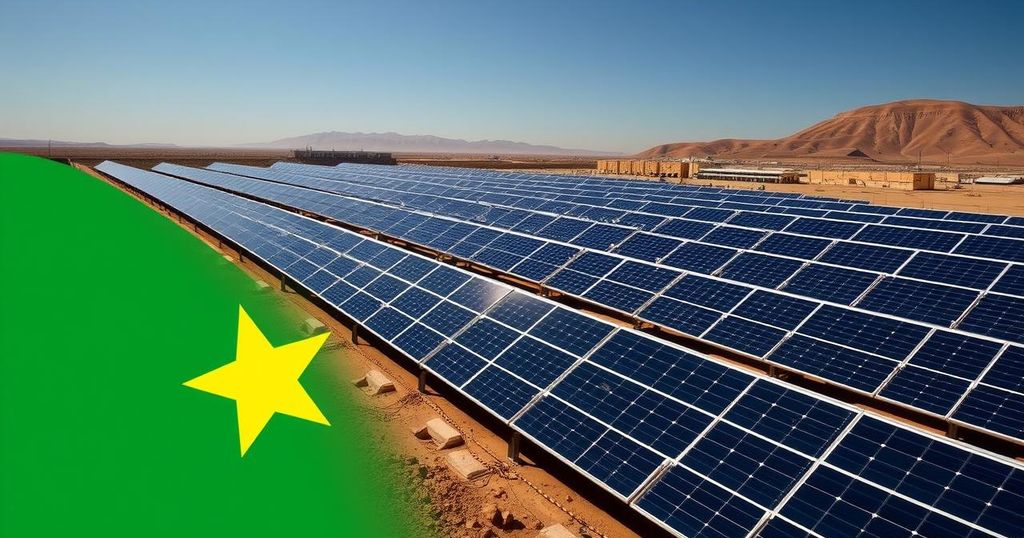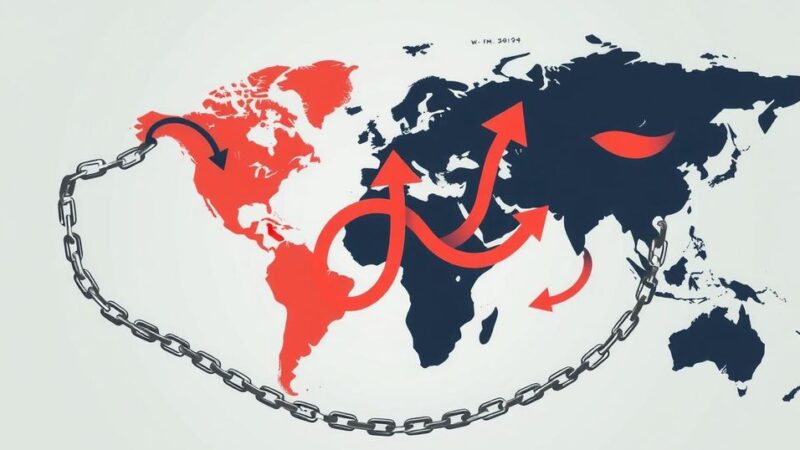Egypt is enhancing its relations with Djibouti through a solar power project designed to diversify Djibouti’s energy sources and lessen its reliance on Ethiopia. The initiative includes the development of a solar facility capable of 276.5 kilowatts, with funding and training provided by Egypt. This agreement occurs within a context of regional tensions, particularly over the Nile River, and reflects broader strategic moves within the Horn of Africa’s energy landscape.
Egypt is strengthening its ties with Djibouti through a newly established solar power initiative aimed at diversifying the Horn of Africa nation’s energy sources and diminishing reliance on Ethiopia, with whom Egypt has contentious relations. The project encompasses the construction of a solar power facility in the arid regions of Djibouti, which officials estimate could eventually expand to a capacity of 300 kilowatts. Under the terms of this agreement, Egypt will provide funding for the enterprise and will also oversee the training of Djiboutian technicians responsible for its operations, as reported in a recent dispatch. The deal was facilitated virtually by Egypt’s Minister of Energy, Mahmoud Essmat, and Djibouti’s Minister, Yonis Ali Gued, who focused their discussions on economic developments while sidestepping any reference to broader political implications in the region. The agreement is specifically directed toward the supply and installation of solar panels in the vicinity of Omar Jaggaa village. Alexis Mohamed, an advisor to President Ismail Omar Guelleh of Djibouti, stated, “The signing on Tuesday of an agreement on the construction of a solar power plant with a capacity of 276.5 kilowatts… not only marks a step towards a mutually beneficial collaboration between our two countries, but also reaffirms the demands of President Ismail Omar Guelleh, who continues to make the energy issue a national priority in favour of our economic and social development.” While the discourse around the agreement revolved around bilateral economic benefits, the strategic ramifications are noteworthy, particularly in light of the existing tensions between Ethiopia and Egypt regarding the Nile River and security matters in Somalia. Egypt’s growing friendship with nations that oppose Ethiopia is indicative of a shifting political landscape in the Horn of Africa. Traditionally, Ethiopia and Djibouti have maintained robust commercial ties, with Ethiopia relying heavily on the Port of Djibouti for the majority of its imports and Djibouti sourcing over 60 percent of its electricity from Ethiopia. Djibouti has recently demonstrated its willingness to bolster these ties further amidst regional disputes, as evident when it proposed to Ethiopia the establishment of a new port amid rising tensions regarding access to maritime resources. To address its energy needs and an increasing electricity demand spurred by economic growth at its port, Djibouti is actively pursuing investments in renewable energy sources, such as solar and geothermal energy. The World Bank reports that approximately 65 percent of Djibouti’s population currently has access to electricity, with expectations to rise to 72 percent upon the completion of the new transmission infrastructure. This figure is anticipated to increase further with the operationalization of the solar farm, highlighting the nation’s commitment to sustainable development and energy diversification.
The dynamics of energy consumption and supply in the Horn of Africa are particularly complex, influenced by geopolitical tensions, trade ties, and development initiatives. Ethiopia, Djibouti, and Egypt find themselves interlinked through various energy agreements and infrastructural projects. Historically, Ethiopia has served as a significant supplier of electricity to Djibouti, which relies on these supplies for domestic and industrial use. Tensions over shared water resources, particularly the Nile River, have driven Egypt to seek alliances and projects that can mitigate its vulnerabilities while ensuring regional influence. Djibouti’s geographical position makes it a crucial player in both trade and energy logistics, especially given its reliance on Ethiopian resources, thus making any shift in their relations particularly impactful in terms of regional stability and economic development. As the demand for energy within Djibouti rises, initiatives like the solar power project from Egypt represent a strategic maneuver in the larger narrative of energy independence and geopolitical positioning.
The recent agreement between Egypt and Djibouti on a significant solar power project highlights a strategic collaboration aimed at addressing Djibouti’s energy needs while potentially altering the balance of power in the Horn of Africa. By investing in renewable energy, Egypt not only provides much-needed assistance to Djibouti but also strengthens its regional influence amidst ongoing tensions with Ethiopia. This initiative underscores the importance of alternative energy solutions in fostering economic development and enhancing political alliances in a region marked by historical rivalries and complex trade relationships.
Original Source: www.theeastafrican.co.ke







